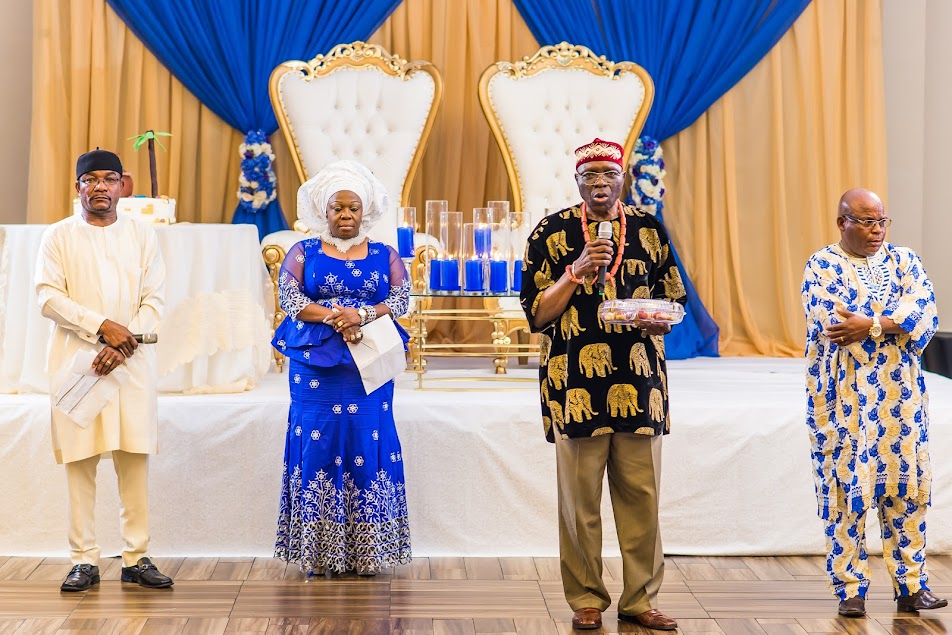
Igbo wedding traditions are steeped in rich cultural symbolism, each element carrying its own significance. Among these revered customs is the presentation and sharing of the kola nut, a cornerstone of Igbo social life and marriage ceremonies. This sacred ritual transcends the simple offering of a nut, representing peace, unity, and blessings. In this blog post, we will explore the profound importance of the kola nut in Igbo weddings and its role in maintaining the cultural identity of the Igbo people.
Weddings are one of the most cherished events in Igbo culture, celebrated with vibrant ceremonies that bring families and communities together. These events are not only about the union of two individuals but also about reinforcing bonds between their respective families and communities. Central to these ceremonies is the kola nut, which holds a revered place in Igbo tradition.
The “Igbo Kola Nut” is a symbol of peace, hospitality, and goodwill, and it plays a significant role in Igbo wedding traditions. Understanding its cultural importance provides deeper insight into how marriage, family, and community are interconnected in the Igbo worldview.
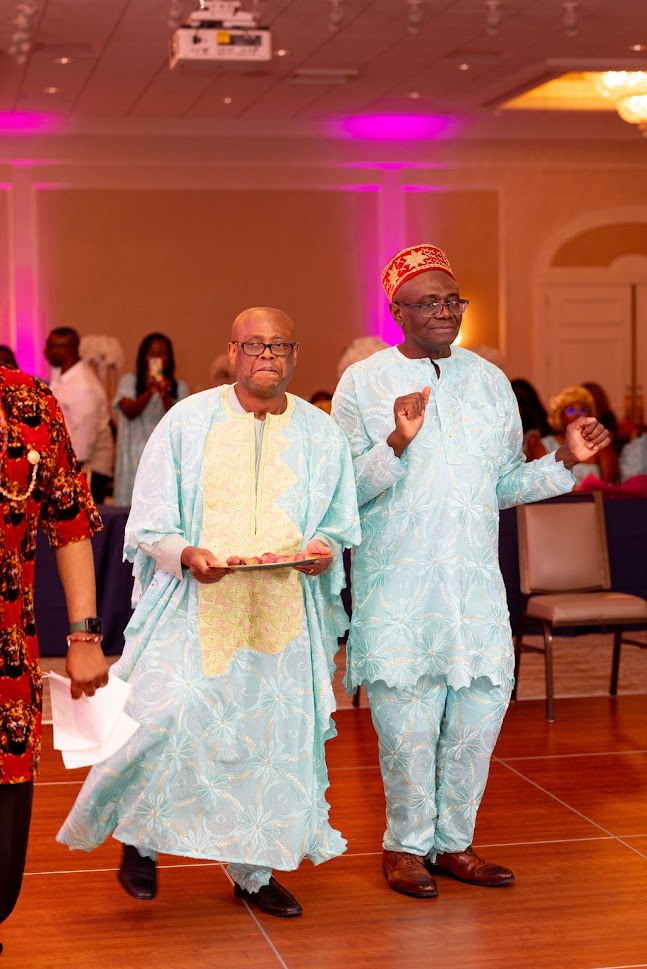
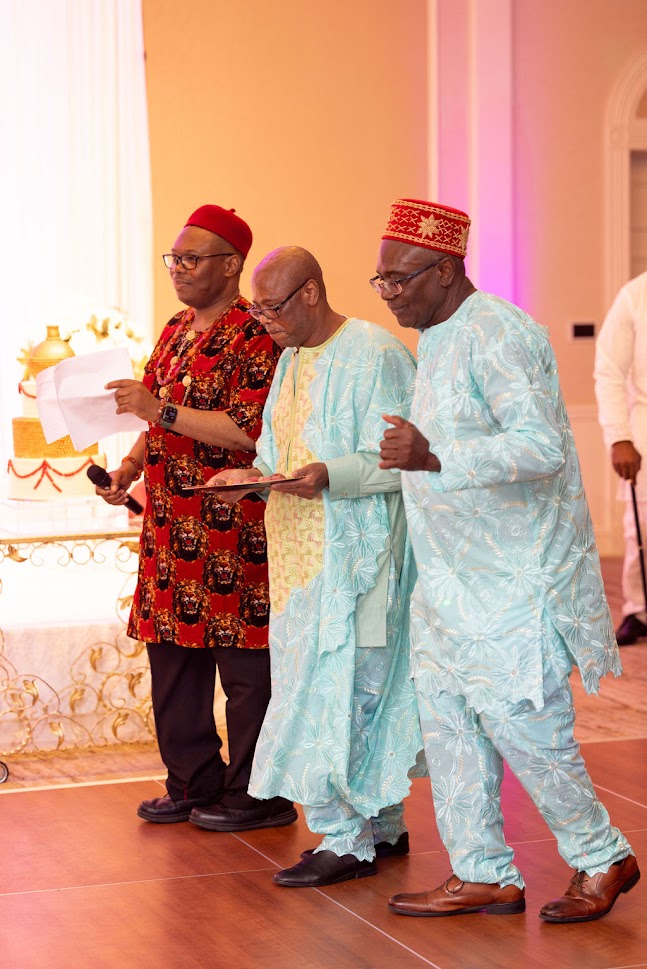
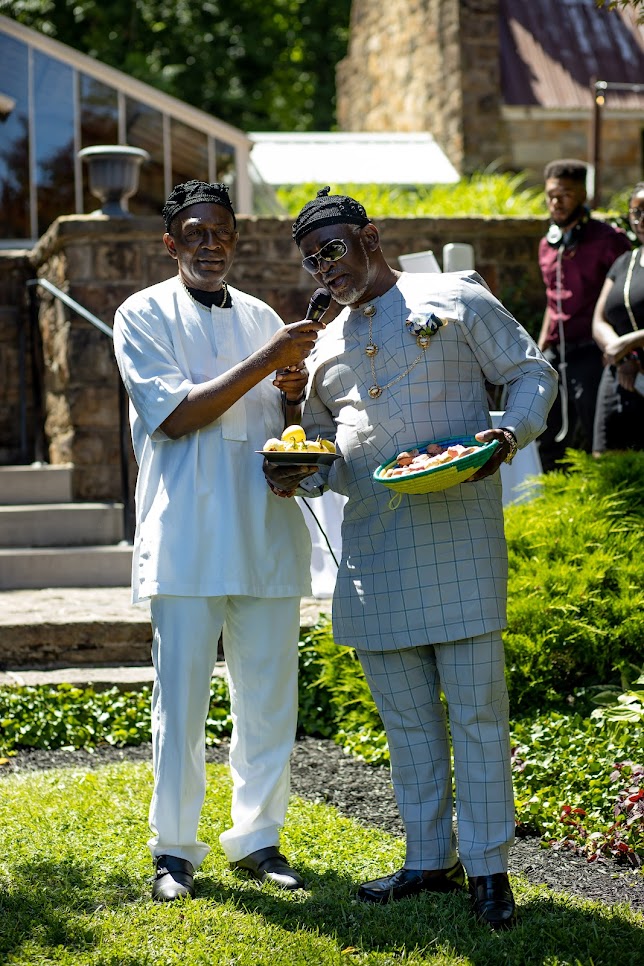
The Cultural Importance of the Kola Nut in Igbo Society
In Igbo society, the kola nut (commonly referred to as ọjị) is far more than just a nut. It is a symbol of peace, unity, and hospitality. The breaking and sharing of the kola nut is an integral part of most important gatherings, whether it be in social, religious, or cultural contexts. Its presentation and offering is a gesture of goodwill, used to open up conversations, welcome guests, and bless ceremonies.
Historically, the kola nut has been used in various ceremonies beyond weddings, such as community meetings, religious rites, and ancestral worship. In each of these settings, the kola nut serves as a bridge between people and their ancestors, as well as between individuals and their communities. When presented, it carries the weight of tradition, representing mutual respect and the willingness to engage in peaceful dialogue.
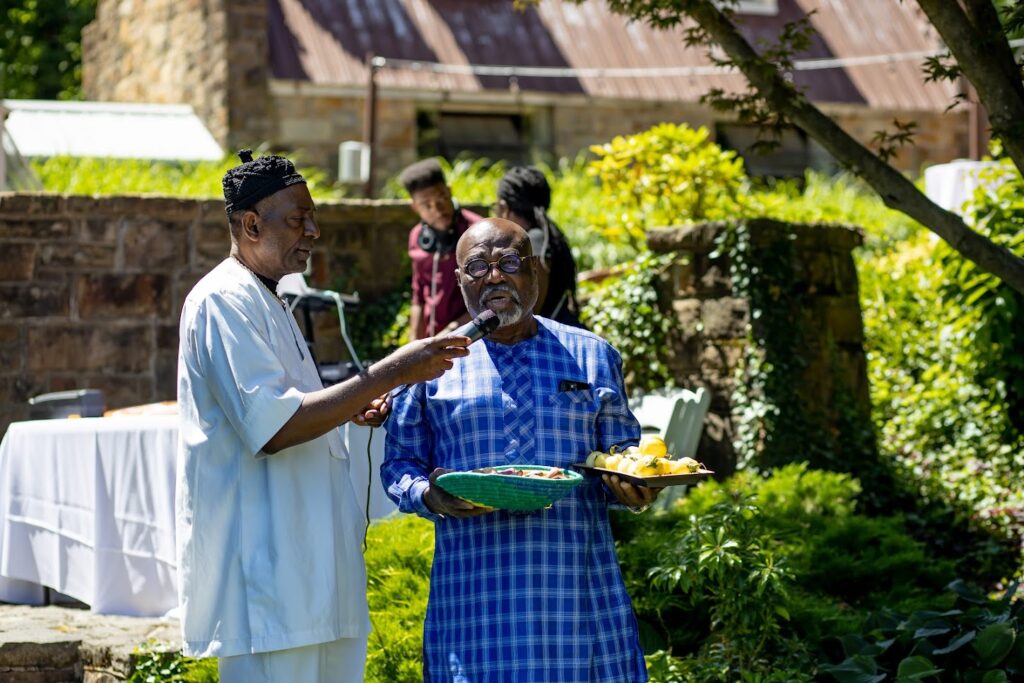
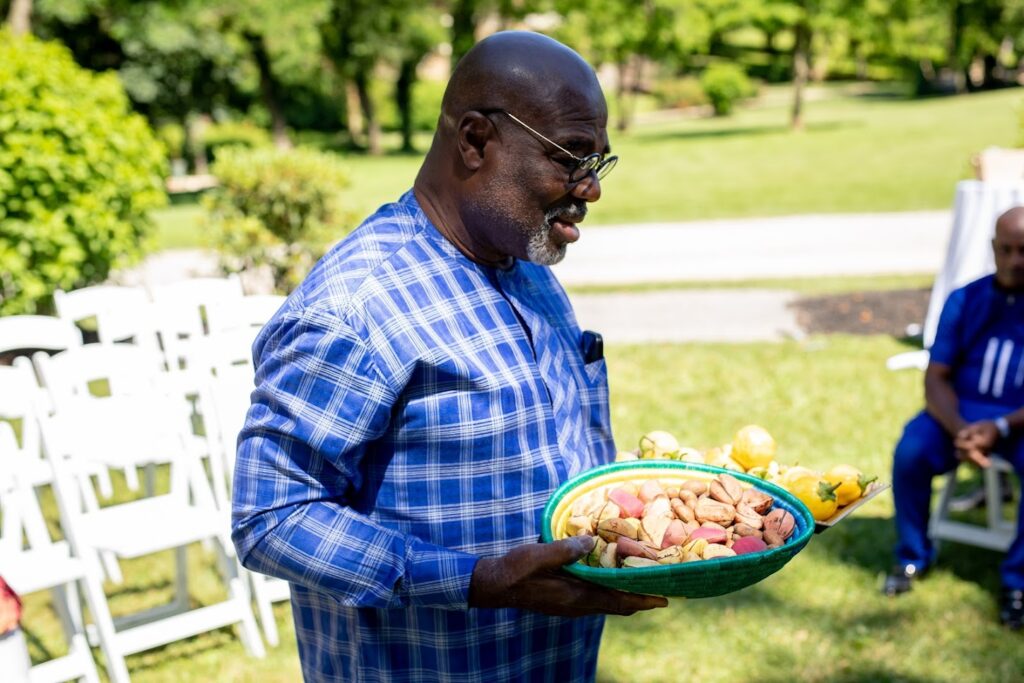
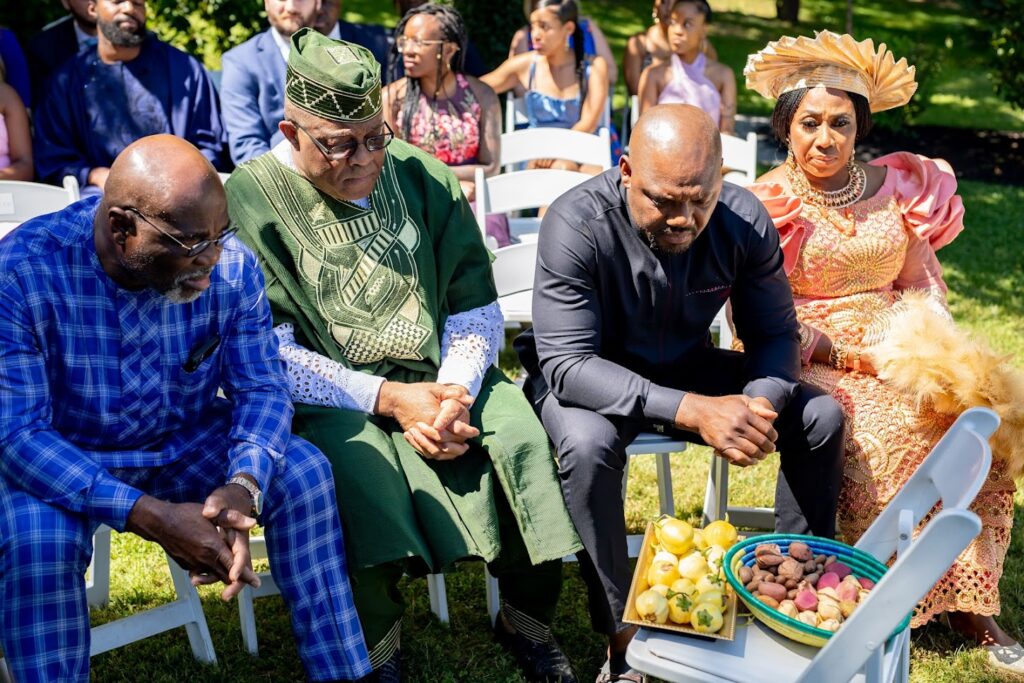
The Role of the Kola Nut in Igbo Weddings
The kola nut’s role in Igbo wedding traditions is deeply symbolic. Its presentation during the wedding ceremony marks a significant moment where both families acknowledge and bless the union.
During the wedding, the bride’s family typically presents the kola nut to the groom’s family as a sign of respect and good intention. It’s more than a mere token—this presentation symbolizes the merging of two families, their agreement to become one, and their commitment to care for each other. The kola nut is often accompanied by prayers for prosperity, good health, and fertility, and elders from both families take part in blessing the union.
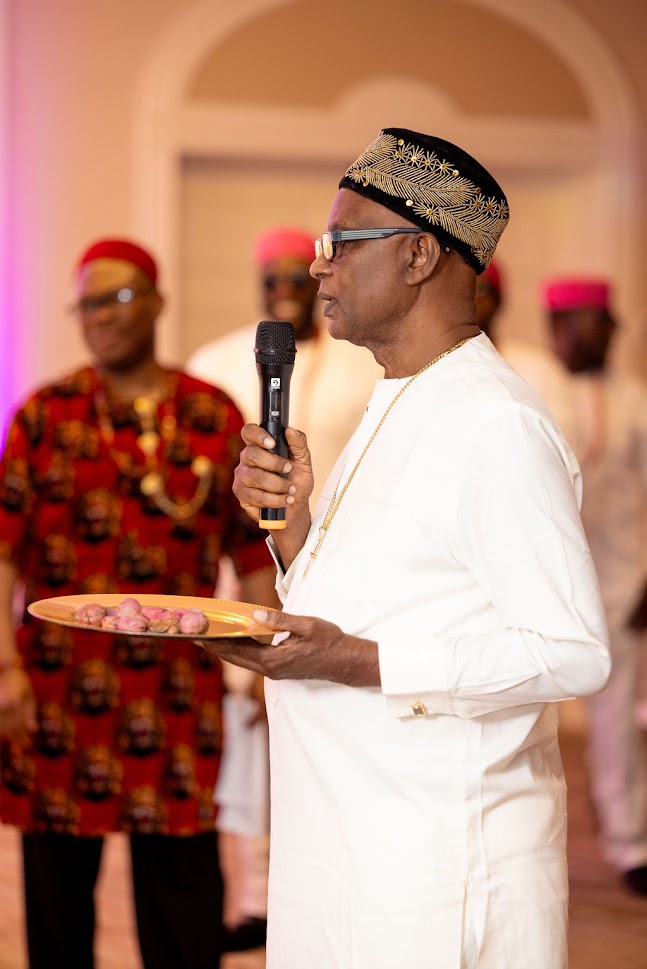
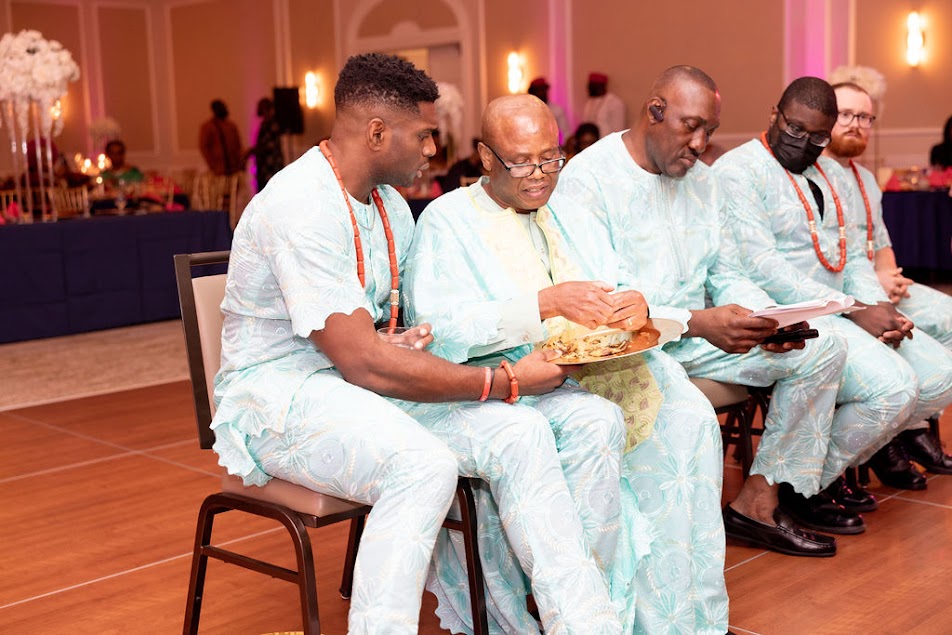
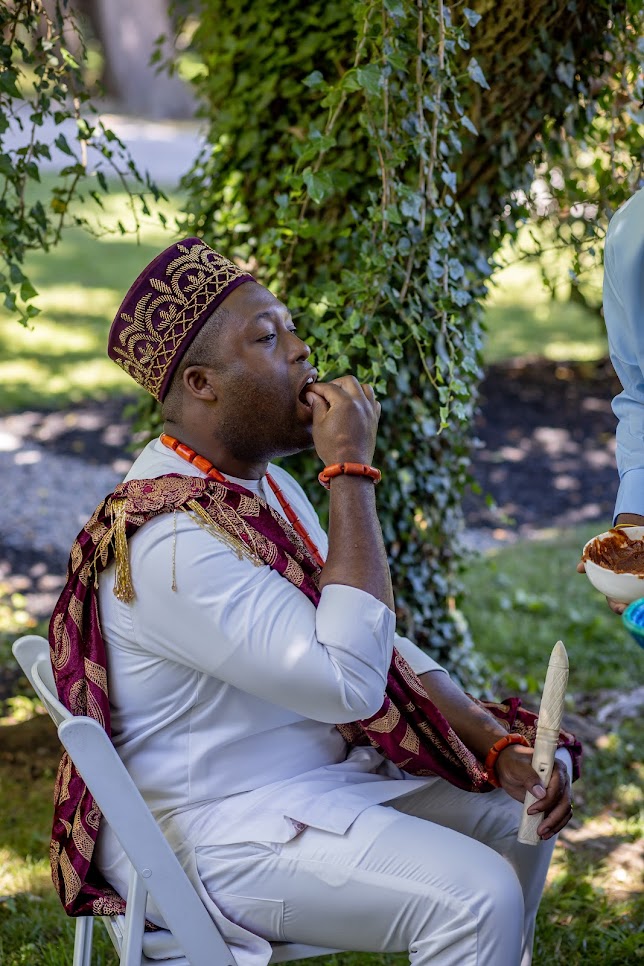
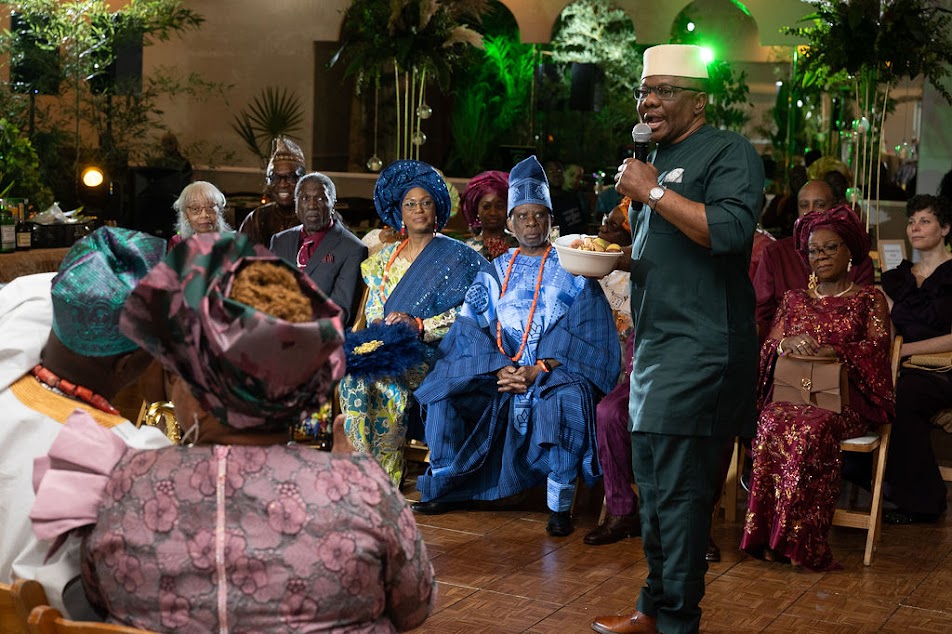
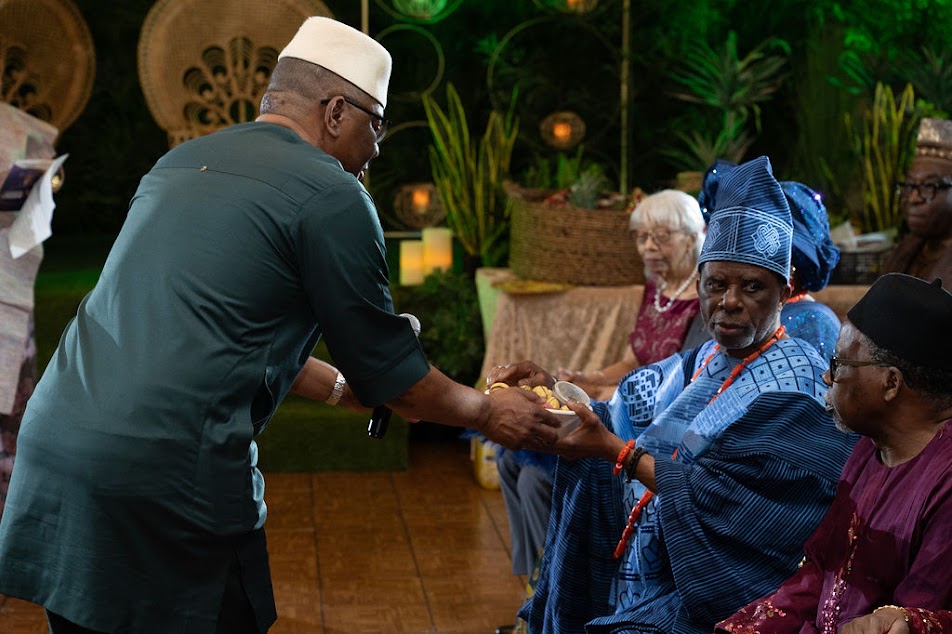
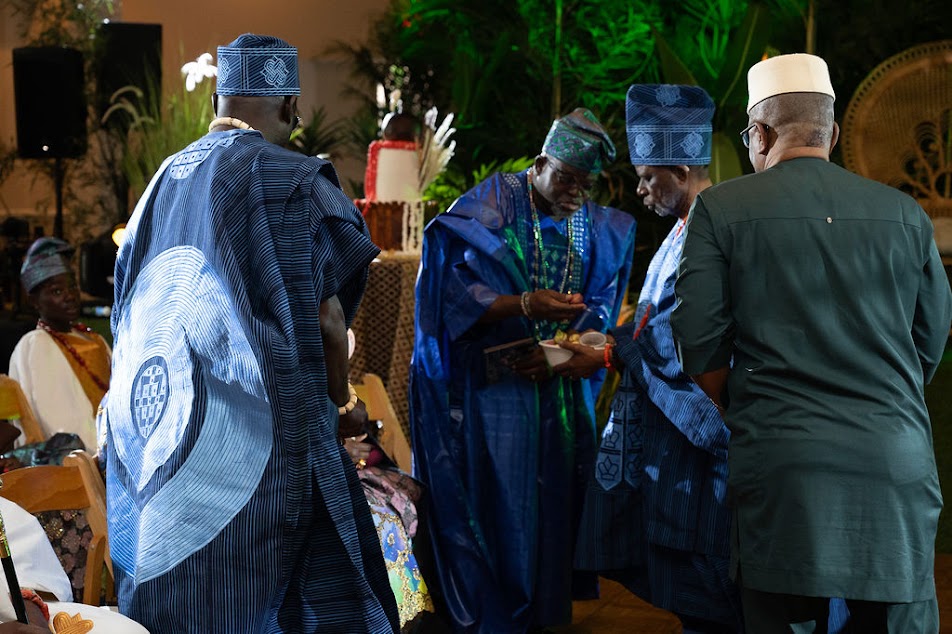
The Ritual of the Kola Nut Presentation
1. Preparation and Presentation
Before the kola nut is presented, it is carefully chosen and prepared for the ceremony. Not all kola nuts are deemed suitable for such an important occasion. It must be fresh and whole, with no visible cracks or defects, as this reflects the purity and unity of the couple’s relationship. The groom’s family typically handles the presentation of the kola nut, offering it to the bride’s family with the highest respect.
2. The Breaking of the Kola Nut
Breaking the kola nut is a sacred act usually performed by an elder or someone of great social standing. It is believed that those who are responsible for breaking the nut hold the power to invoke ancestral blessings upon the couple. The elder breaks the nut into pieces, offering prayers that the union will be fruitful, peaceful, and everlasting.
Traditionally, the prayers offered during this part of the ceremony are heartfelt and rooted in Igbo spirituality. The breaking of the kola nut is considered a symbolic opening of a new chapter in the couple’s lives, with blessings from the community and their ancestors guiding their future.
3. Sharing of the Kola Nut
Once the kola nut is broken, it is shared among the couple’s families and wedding guests. The act of sharing reinforces the communal nature of the marriage, symbolizing unity and collective support for the couple. Accepting and eating the kola nut is also a sign of respect for the couple and their union, as well as for the cultural traditions that bind them.
In Igbo culture, eating the kola nut is a gesture of participation in the blessings offered to the couple, and it signifies the acceptance of responsibility to support the new marriage. It fosters a sense of shared joy and reinforces the role of the community in the couple’s future.
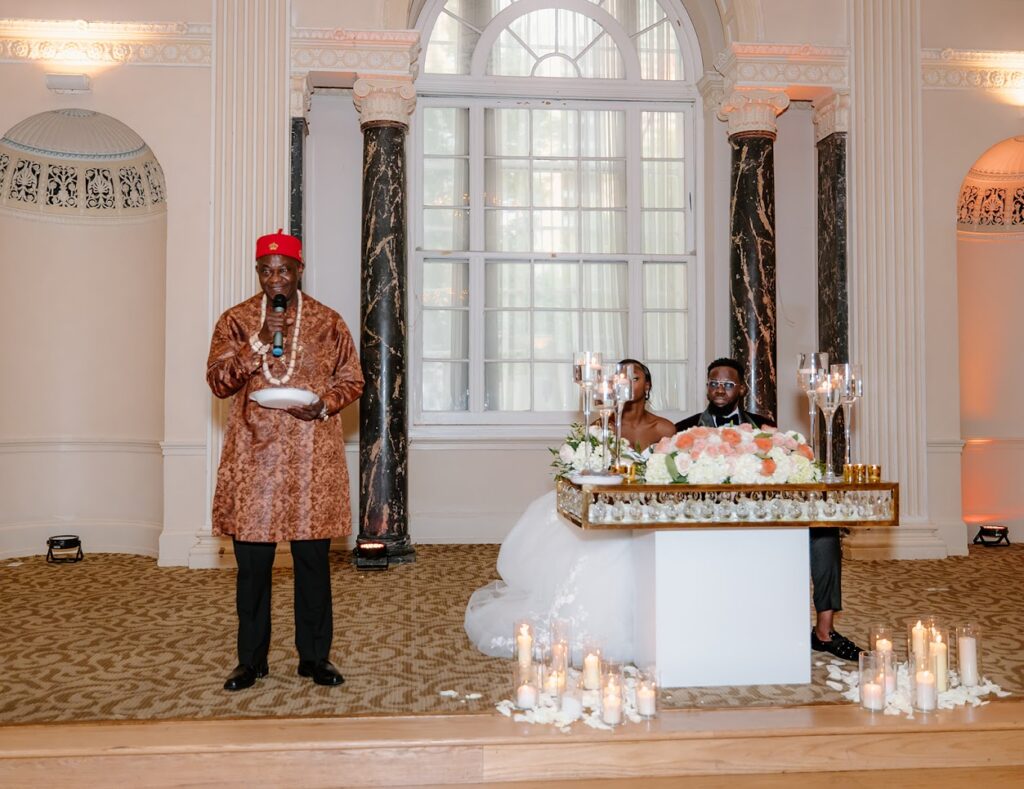
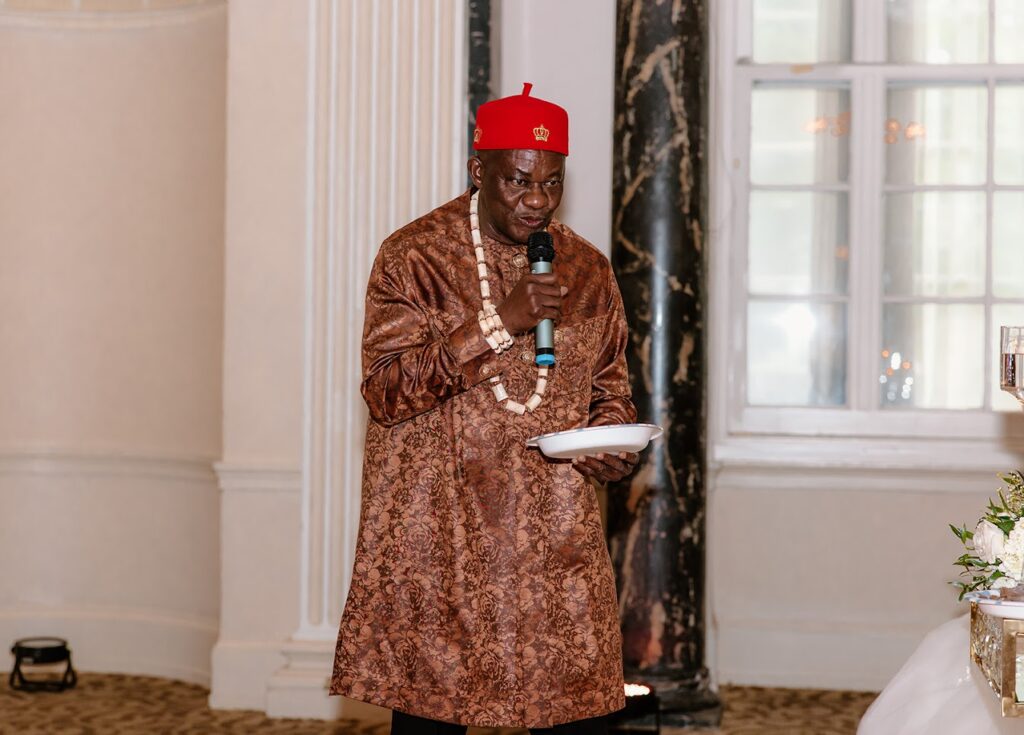
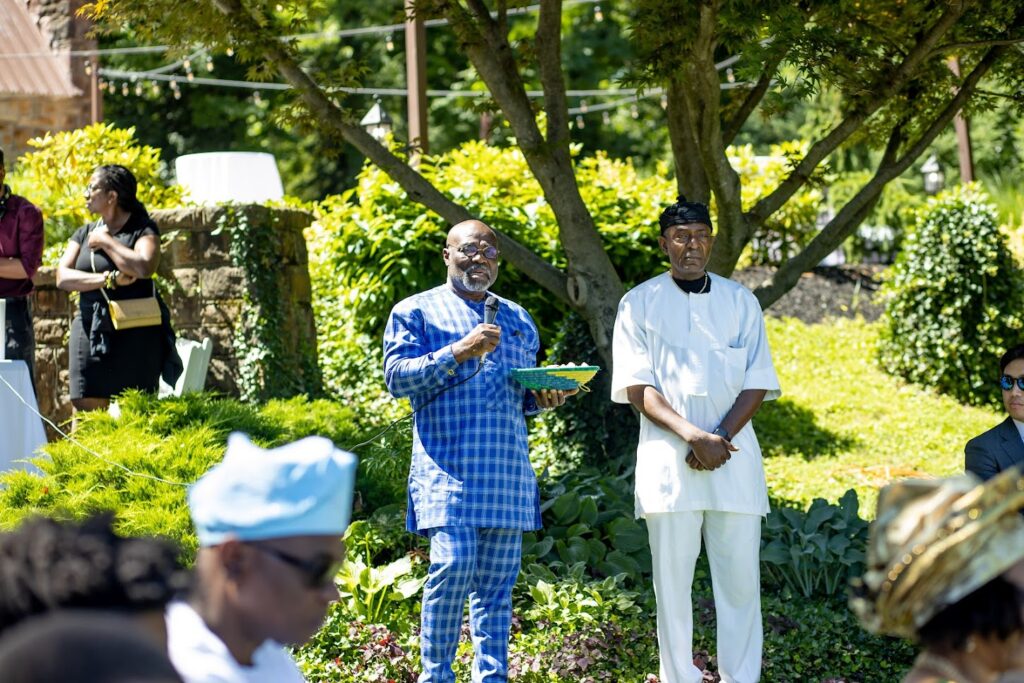
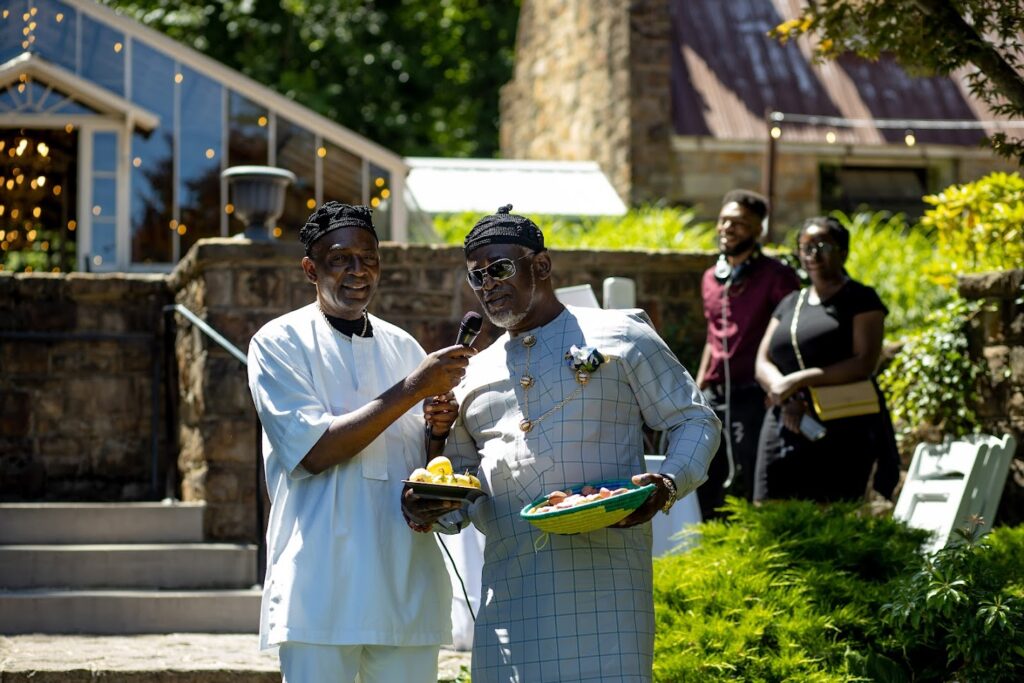
Symbolism of the Kola Nut Beyond the Wedding Ceremony
The kola nut’s significance extends far beyond weddings. In Igbo culture, it is a universal symbol of goodwill, used in day-to-day interactions to foster relationships. In gatherings, meetings, and even casual encounters, the kola nut is presented as a sign of peace and respect.
Offering the kola nut serves as an invitation to engage in positive and meaningful dialogue, reinforcing the values of hospitality and mutual respect. Its significance in Igbo culture transcends individual ceremonies, standing as a symbol of community and interconnectedness.
The kola nut is much more than just a part of Igbo wedding traditions—it is a symbol of unity, peace, and cultural identity. Through the presentation, breaking, and sharing of the kola nut, families and communities come together to bless and support the union of the couple. This timeless tradition continues to thrive, connecting generations and reinforcing the values that define Igbo culture.
Whether in a traditional village setting or a modern city wedding, the kola nut remains a powerful symbol of the bonds that tie individuals to their families and their heritage. Its enduring presence in Igbo wedding traditions speaks to the lasting importance of community, family, and culture in shaping the path of marriage.
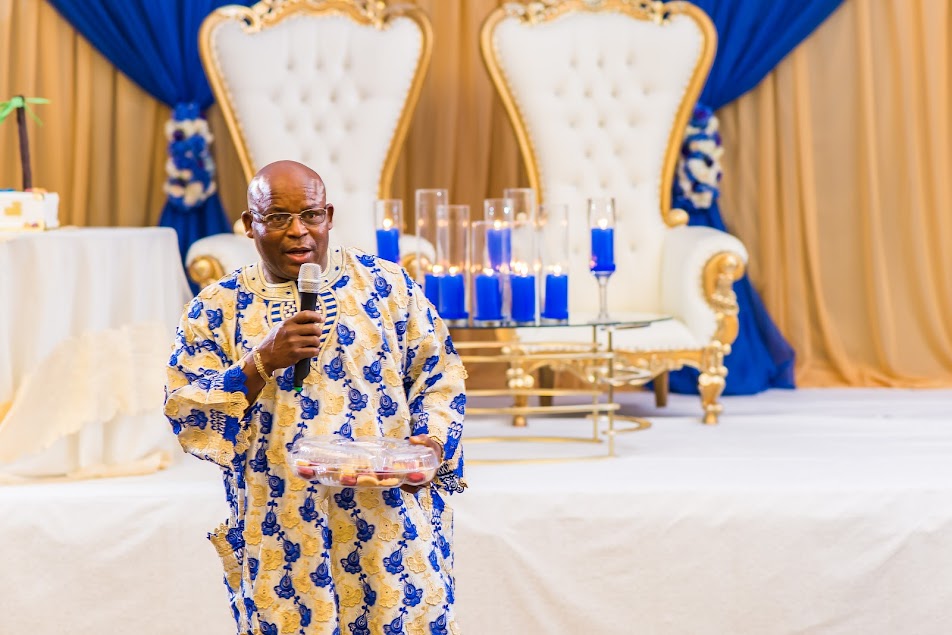
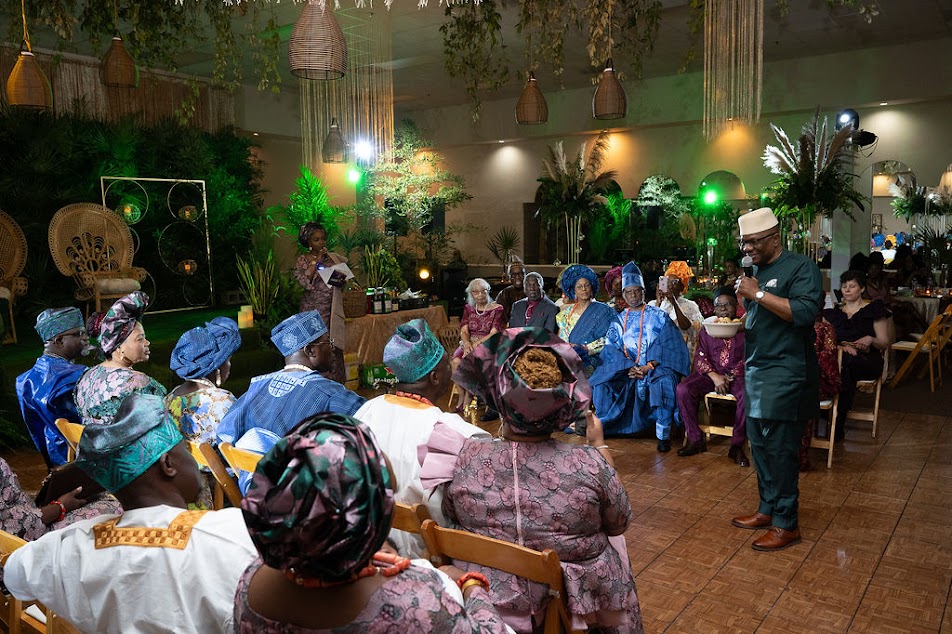
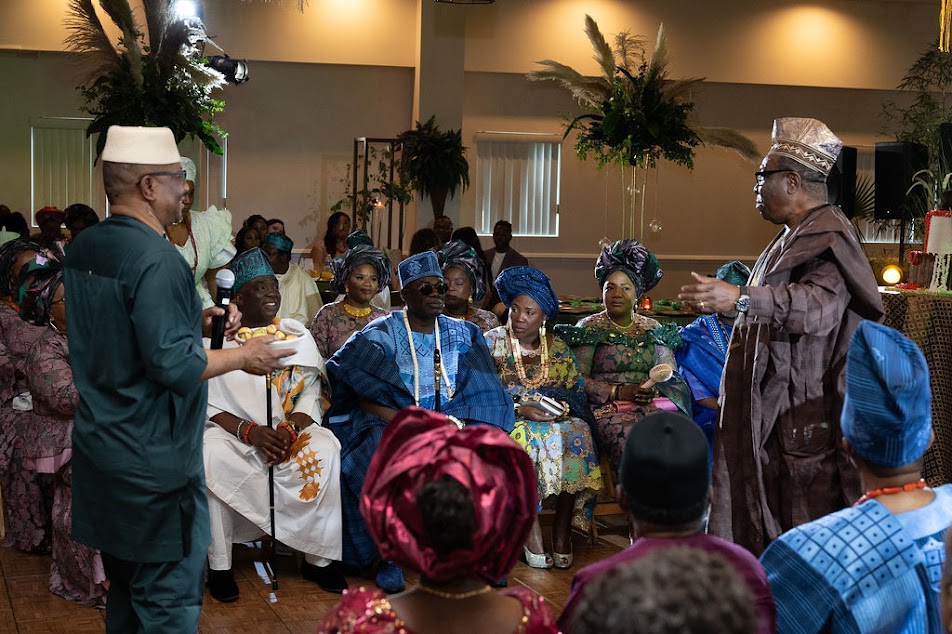
Curious to discover more about the unique customs of Igbo weddings? Check out our “Igbo Wedding Traditions” blog series, where we explore the fascinating rituals that define these meaningful celebrations. Have you experienced a kola nut ceremony or want to know more? Drop your thoughts or stories in the comments—let’s continue the conversation about this beautiful tradition!







